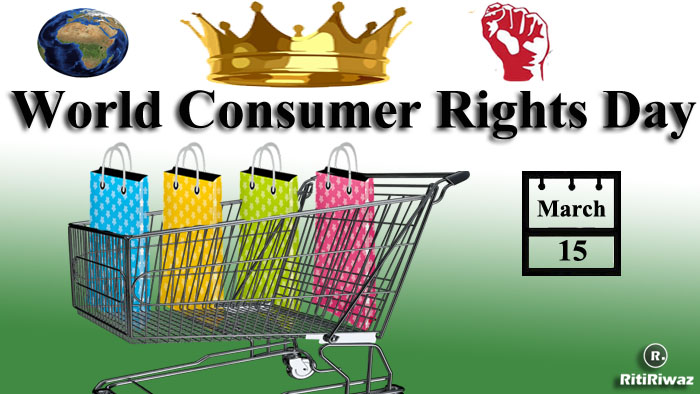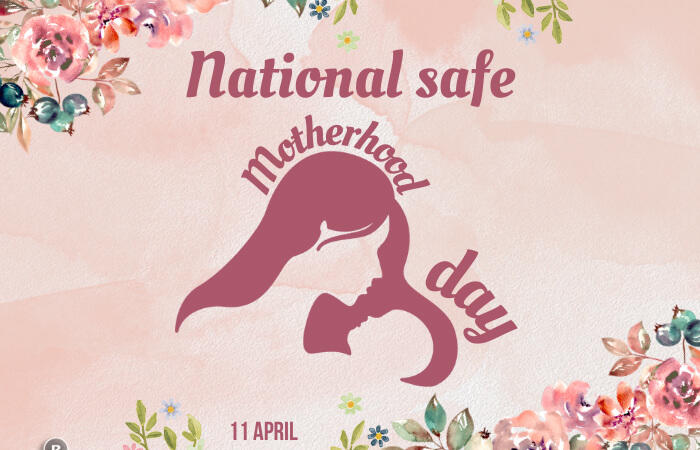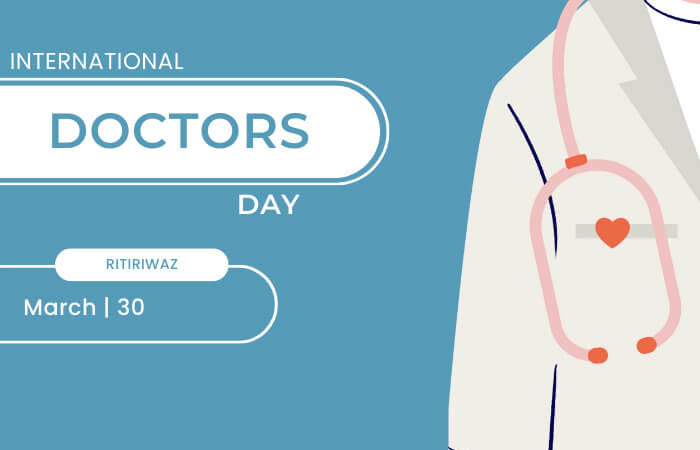World Consumer Rights Day

World Consumer Rights Day is celebrated every year on 15 March to raise the voice of consumer rights and make them aware of protecting their rights. Consumer Day is associated with references to protecting the rights of consumers. The main of celebrating Consumer Rights Day is to build a world where everyone has access to safe and sustainable products and services.
Consumer means those people who spend money in exchange for a service or item, that is, purchase goods or services by paying an amount, but the person who purchases for re-sale or business purpose cannot be classified as a consumer.
The theme of 2025 World Consumer Rights Day is “A Just Transition to Sustainable Living“. This World Consumer Rights Day will spark the first-ever global conversation on the consumer vision for fair digital finance.
According to Consumers International “By 2024, digital banking consumers are expected to exceed 3.6 billion. In the developing world, the proportion of account owners sending and receiving payments digitally has grown from 57% in 2014 to 70% in 2017. Digital finance brings new opportunities – but also new risks that can lead to unfair outcomes for consumers. Digital finance can increase the likelihood that the most vulnerable are left behind.”
History
The concerted effort to address the causes of consumer exploitation resulted from the presentation of the Consumer Rights Act in the US on March 15, 1962, which included safety information, selection, and representation. In the United Nations, US President John F. Kennedy decided to celebrate World Consumer Day on 15 March 1983 at Consumer International, keeping in mind the importance of proposing a bill on consumer rights and the resulting legislation. This is why World Consumer Day is celebrated every year on 15 March.
On 09 April 1985, members of the United Nations announced a guide to consumer protection in which the following seven rights were accepted.
1. Right to information
2. Right to safety
3. Grievance Redressal Rights
4. Right to choose goods and services
5. Right to indemnification
6. Consumer education right
7. Right to a healthy environment
If the item is packaged with respect to food and medicines, then the following things should be kept in mind before use.
1. Name of the item and name of the element created
2. Date of manufacture
3. Last consumption date
4. total net weight
5. Maximum Retail Price
It is the duty of consumers not to use the item if the consumption limit expires. Consumer exploitation refers to the behavior of the producer or seller through which the consumer is cheated by receiving inferior services and providing inferior services or goods, which hurts the interests of the consumer and damages their body and money.
In 1986, the Government of India passed the Consumer Protection Act and gave legal rights to the consumers to get rid of exploitation. It aims to provide simpler and quicker access to the redressal of consumer grievances.
The CPA seeks to protect the following basic rights of consumers
-
Right to be protected against the marketing of goods and services which are hazardous to life and property
-
Right to be informed about the quality, quantity, potency, purity, standard, and price of goods or services
-
Right to be assured, wherever possible, access to a variety of goods and services at competitive prices
-
Right to be heard and to be assured that consumer’s interests will receive due consideration at appropriate forums
-
Right to seek redressal against unfair trade practices or restrictive trade practices or unscrupulous exploitation of consumers
-
Right to consumer education
The Consumer Protection Act 1986 provides for the redressal of complaints received from consumers, which is a three-tier quasi-judicial system and it is not necessary to hire a lawyer. There are three levels of this three-tier system
1. District Forum – In this, claims related to goods or services worth five lakh are heard. The decision of this forum can be appealed to the State Commission within a period of thirty days from the date of the order.
2. State Forum or Commission – Through this commission, there is a system of settling disputes ranging from 5 lakh to 20 lakh.
3. National Commission – It is the apex body whose office is located in Delhi. In its jurisdiction, apart from hearing disputes of more than Rs 20 lakh, there is also the task of hearing appeals against the decisions of the State Commission. An appeal against the decision of this commission can be made in the High Court within a period of 30 days from the date of the decision.
Complaint Filing:
-
A written complaint can be filed before the District Consumer Forum for pecuniary value of up to Rupees twenty lakh, State Commission for value up to Rupees one crore, and the National Commission for value above Rupees one crore.
-
If the complaint is against defective goods, the consumer is empowered to take a sample of the goods for testing.
-
In the complaint/appeal/petition submitted under the Act, a consumer is required to pay a nominal fee.
-
In the event of the death of a complainant who is a consumer or of the opposite party against whom the complaint has been filed the proceedings will not come to a halt. The legal heir of the complainant or the opposite party can represent. The proceedings can be instituted or continued.
To prevent consumer exploitation, the consumer has to be awakened himself, aware of his rights and duties so that the interests of the consumer can be protected and his rights can be protected.
The objective of World Consumer Rights Day
The purpose of this day is to make the consumer aware of their rights and responsibilities. Customer hoarding, black marketing, distribution of adulterated material in the market, charging a high price, sale of standard goods, fraud, irregularities in measures, without guarantee. In addition to not providing standard service, awareness campaigns are conducted on this day in view of crimes against customers.
Suggested Read: National Consumer Day






